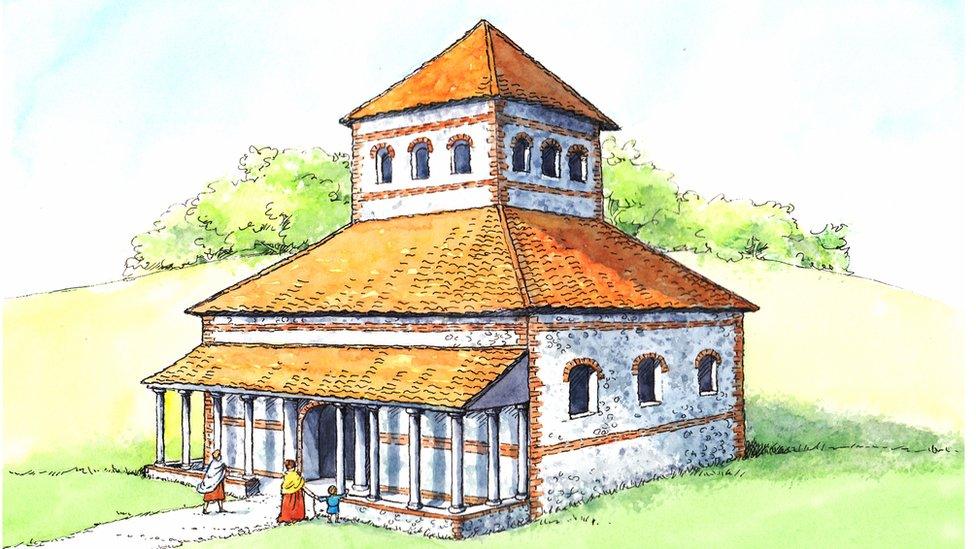Further excavation of Roman town to be carried out
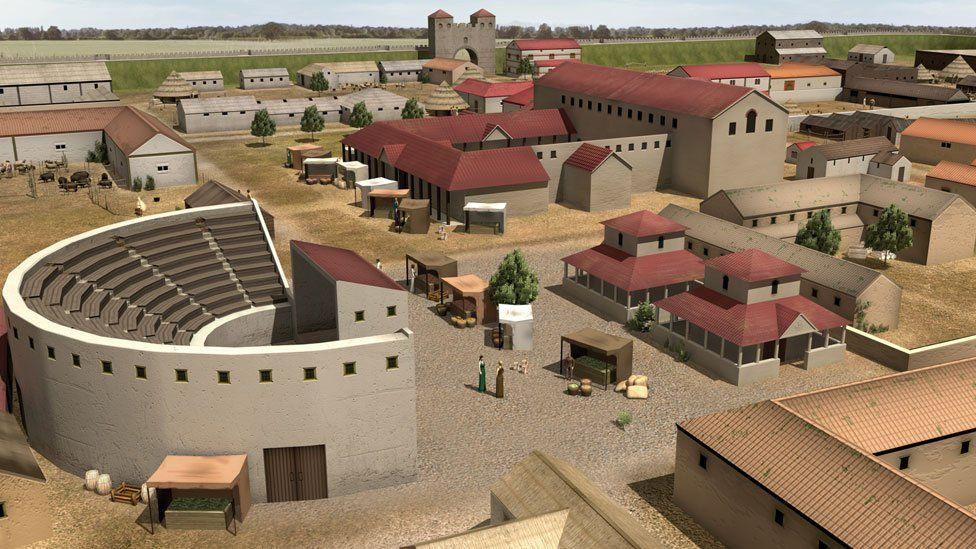
Venta Icenorum had running water, baths, a town hall and a forum, and was enclosed inside walls in the 3rd Century
- Published
Further digs are to be carried out on a Roman site in the grounds of a hotel, with an "emphasis on public participation".
The Caistor Roman Project (CRP) is to explore a trench on the eastern end of the site at Caistor Hall Hotel, Caistor St Edmund, near Norwich.
The features already uncovered during digs at the site have included large quantities of late Iron Age pottery.
Special archaeology taster sessions and activities for children will be available from Monday, alongside guided tours on two Saturdays until the end of August.
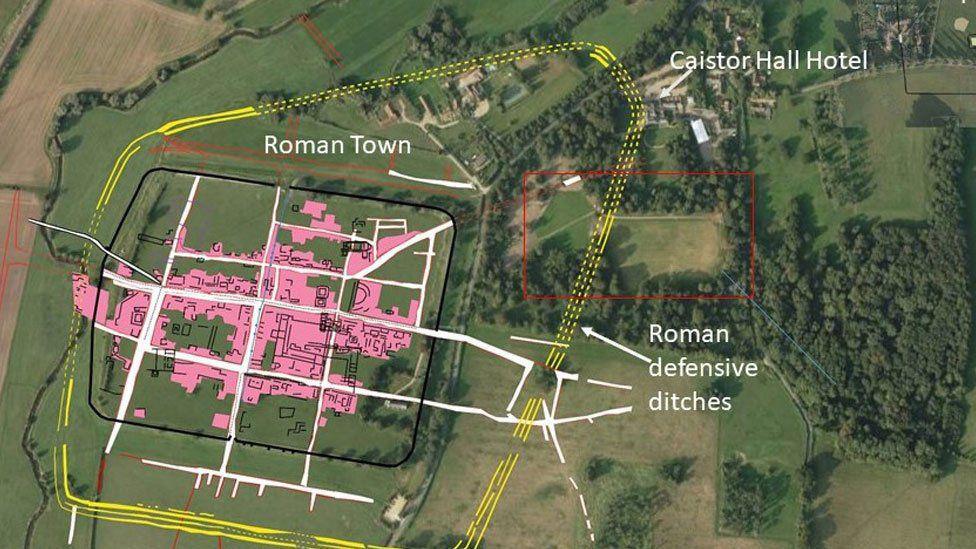
The Caistor Hall Hotel site is being explored further
Earlier excavation of a temple reinforced the notion of a town – Venta Icenorum – which reflected an earlier settlement on a cult site of the Iceni tribe.
CRP said: "We hope that future excavations will allow us to consider the wider processes by which the Roman town was eventually superseded by Norwich, and contribute to the debate about the role of towns in Roman and medieval Europe."
Prof Will Bowden, of the University of Nottingham, said: "The 2023 excavations suggested that the origins of Venta Icenorum really lie beneath the grounds of Caistor Hall Hotel, so it is wonderful to be able to explore this further in 2024."
Mike Pinner, of CRP, added: "This year’s work is a further development of the research that we've been carrying out in the area beyond the walls of the Roman town for some time which demonstrates that the area of habitation was much larger than previously imagined."
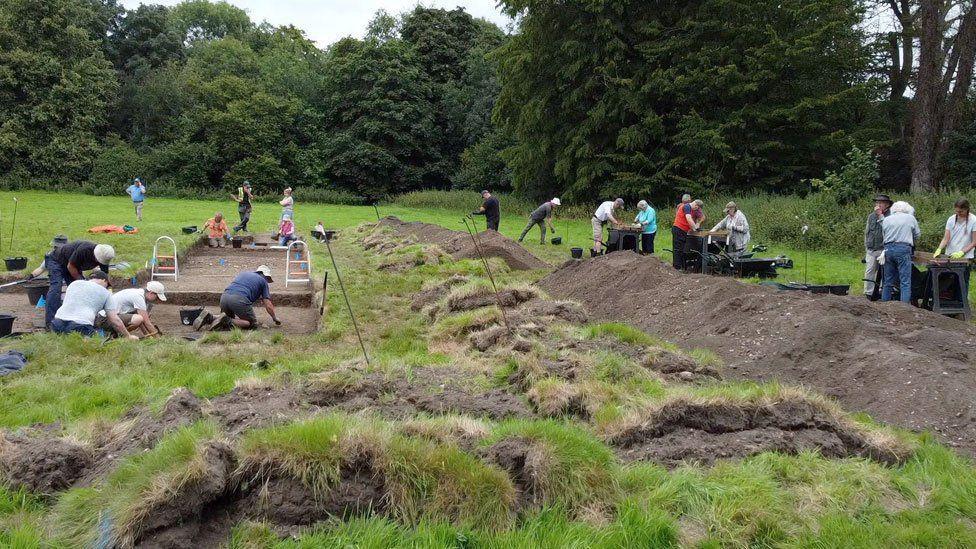
Volunteers working with archaeologists at the site
Caistor Roman Project was formed 15 years ago when the University of Nottingham began its excavation of the Roman town.
The settlement is thought to be the largest Roman town in East Anglia.
According to the project, Venta Icenorum was "one of only three Roman regional capitals in Britain that were not succeeded by medieval and modern towns", with the others being Wroxeter and Silchester.
Venta Icenorum was the smallest Roman regional capital in Britain.
It is excavated every summer by a team of locals and archaeologists.
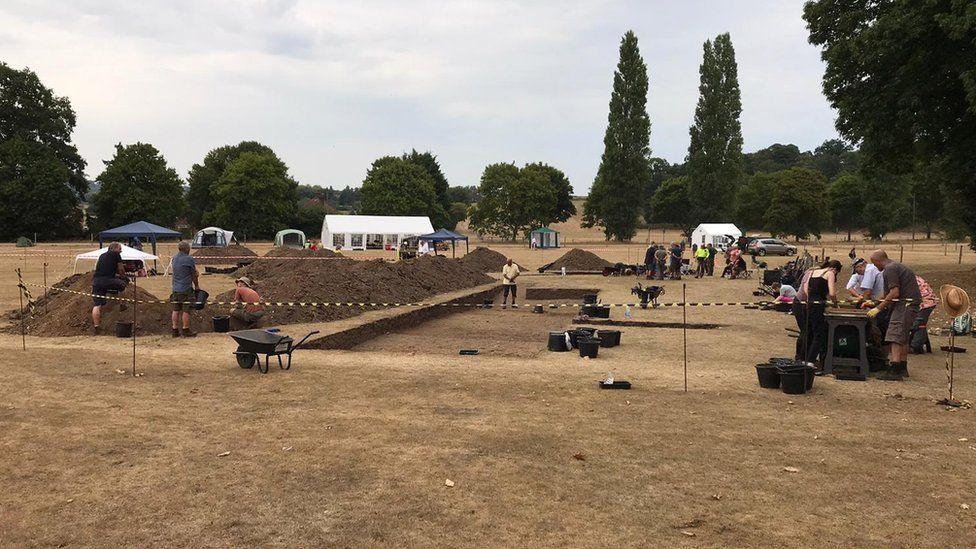
Venta Icenorum, which was the smallest Roman regional capital in Britain, is excavated every summer by local people and archaeologists
A 20-year dig at Caistor St Edmund has revealed even more about Roman life.
Get in touch
Do you have a story suggestion for Norfolk?
Follow Norfolk news on BBC Sounds, Facebook, external, Instagram, external and X, external.
Related topics
- Published20 August 2023
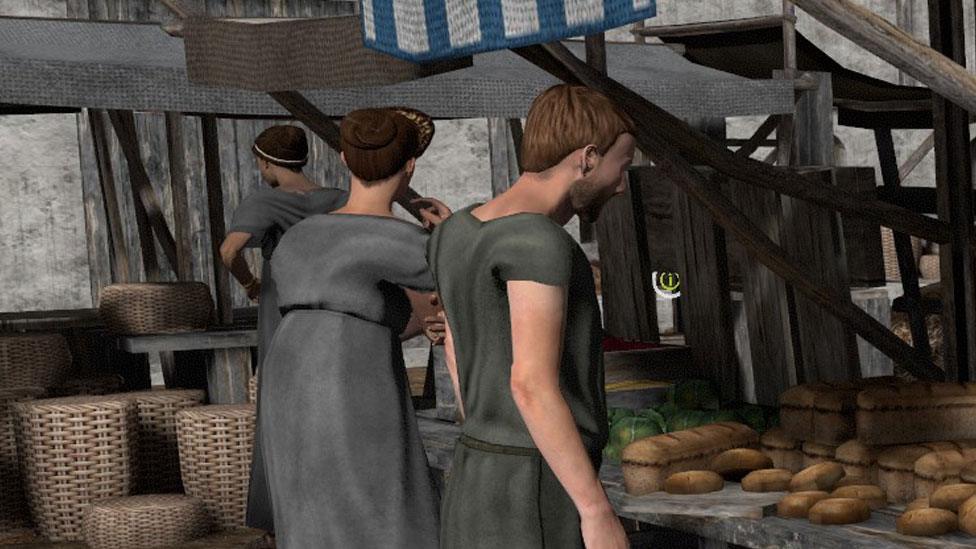
- Published17 August 2022
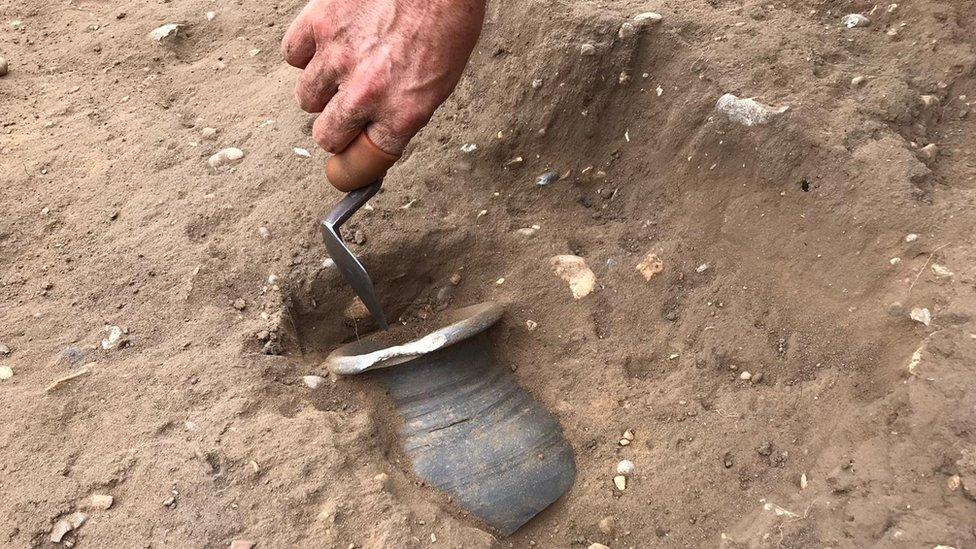
- Published13 September 2020
